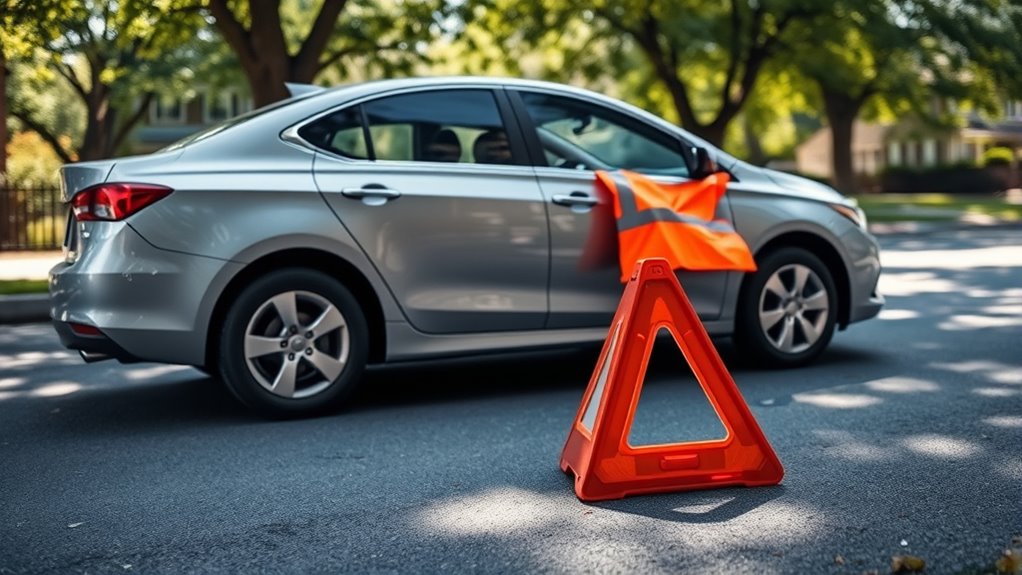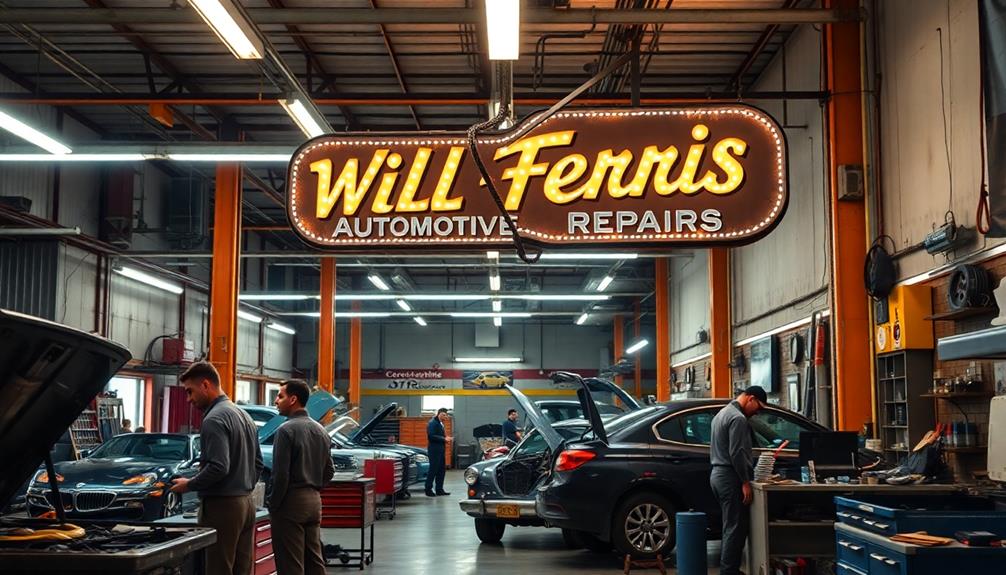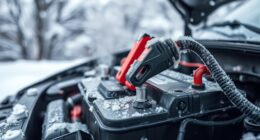After a minor crash, stay calm and verify everyone’s safety by checking for injuries and moving to a safe spot if possible. Take clear photos of the damages, gather contact and insurance details from other parties, and collect witness information. Inspect your vehicle for hidden issues or leaks. Contact your insurance company to report the incident and follow their instructions. For a detailed guide on handling a minor crash effectively, keep exploring this topic.
Key Takeaways
- Ensure everyone’s safety, check for injuries, and move to a secure location if necessary.
- Document the scene thoroughly with photos of damages, road signs, and surroundings.
- Exchange contact, insurance, and license information with involved parties and witnesses.
- Report the accident to your insurance company promptly, providing all evidence collected.
- Arrange repairs through approved body shops and follow up to ensure proper vehicle recovery.

After a minor crash, it’s important to stay calm and assess the situation quickly. Your first priority should be ensuring everyone’s safety. Check if anyone is injured and, if so, call emergency services immediately. Even if no one seems hurt, it’s still wise to move to a safe location if possible, especially if your vehicle is obstructing traffic. Once you’re in a safe spot, turn on your hazard lights to alert other drivers.
Next, gather evidence of the accident. Take clear photos of the damage from multiple angles, including the surrounding area and any relevant road signs or signals. This documentation can be vital when filing insurance claims. Collect contact information from any other involved parties, including their names, phone numbers, insurance details, and license plate numbers. If there are witnesses, ask for their contact information as well. Avoid admitting fault or making statements that could be misinterpreted; stick to factual descriptions of what happened.
Gather clear photos, collect contact info, and avoid admitting fault to ensure proper insurance claims.
Now, it’s time to conduct a thorough vehicle inspection. Even if the damage appears minor, don’t assume everything is fine. Check for fluid leaks, unusual noises, or other signs of underlying issues. Note any dents, scratches, or broken parts. This inspection not only helps you understand the extent of the damage but also provides valuable information for your insurance claim. If you’re unsure about the severity of the damage, consider having a professional vehicle inspection. A mechanic can identify hidden problems that might not be immediately visible, preventing future safety hazards or costly repairs. Additionally, the cybersecurity vulnerabilities during a crisis like this highlight the importance of safeguarding your personal data when sharing information with insurance companies or other parties.
When you’re ready to handle the paperwork, contact your insurance company to report the accident. Be honest and detailed when describing what happened, and provide all the evidence you gathered. Most insurance providers will guide you through the claims process. They may request photos, a copy of the police report if applicable, and details from the other driver. Filing your insurance claim promptly ensures you’re covered and helps speed up repairs. Keep copies of all communication and documents related to the accident for your records.
Finally, consider seeking repairs through your insurance company’s approved body shops to ensure quality work. Follow their instructions on how to proceed, and stay in touch throughout the process. Remember, staying organized and calm after a minor crash makes the entire process smoother. Taking these steps helps protect your rights, ensures proper vehicle inspection, and streamlines your insurance claims, so you can get back on the road quickly and confidently.
Frequently Asked Questions
Should I Contact My Insurance Immediately After a Minor Crash?
Yes, you should contact your insurance immediately after a minor crash. Reporting promptly helps you file an insurance claim within the required reporting deadlines, preventing potential issues with coverage. By notifying your insurer right away, you ensure they have all necessary information to process your claim smoothly. Don’t delay, as timely reporting can safeguard your rights and make the claims process easier for you.
How Do I Document Damages at the Scene?
Think of documenting damages like capturing a snapshot of a story. After a minor crash, take clear damage photos from multiple angles, including close-ups of scratches and dents. Gather witness details—names and contact info—to support your account. These actions guarantee you have solid evidence should you need to file an insurance claim or dispute, much like saving a photo to preserve a moment in time.
Is It Necessary to Report a Minor Crash to the Police?
You should report a minor crash to the police if there are injuries, significant property damage, or local laws require it. Doing so helps with legal considerations and guarantees an official record, which can be vital for insurance claims. Even if not mandatory, reporting can protect you legally and streamline your insurance process. Always check local regulations to determine if police notification is necessary for your specific situation.
What Information Should I Exchange With the Other Driver?
You should exchange your name, address, phone number, driver’s license number, insurance details, and vehicle registration with the other driver. Be sure to avoid admitting fault and stick to facts. This information assists with insurance claims and accident reports later. Keep a calm attitude, and if possible, document the scene with photos. Clear communication now guarantees smoother processing of insurance claims and accurate accident reports afterward.
When Should I Seek Medical Attention After a Minor Collision?
You should seek medical attention immediately if you notice injury symptoms like pain, dizziness, or headaches after a minor collision. Don’t ignore any discomfort, even if it seems minor, because some injuries aren’t obvious right away. A medical evaluation guarantees you catch hidden injuries early and get the proper treatment. Prioritize your health and visit a doctor promptly to prevent potential complications from delayed diagnosis.
Conclusion
After a minor crash, remember that staying calm and following these steps can turn a stressful situation into a manageable one. Think of it like a small dent in your favorite shirt; it might be annoying, but with the right care, it won’t ruin the whole fabric. Just like taking care of that shirt, handling a minor accident with patience and clarity can get you back on track quickly, keeping things smooth and stress-free.









